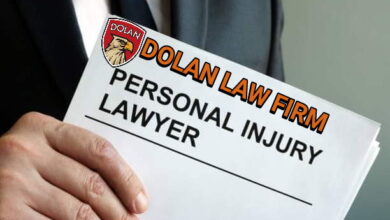A Guide to Employee Rights After an Injury at Work

⢠Employers need to purchase workers’ compensation insurance to cover any workplace injury-related expenses.
⢠Employees can file a workers’ compensation claim to receive benefits. You can also hire a lawyer specialized in your injury.
⢠Negligence suits may be filed against employers or third parties if unsafe work conditions cause an injury.
⢠Employees are entitled to special accommodations under the ADA if they have a long-term disability or reduced mobility.
⢠Employers need to understand all applicable laws in order to provide the best possible care for injured employees.
If you are a business owner or manager, it’s important to understand the legal rights of each employee who is injured while on the job. Fortunately, the law provides many protections for those who get hurt in the workplace. Here’s what you should know about employee rights after an injury at work.
Workers’ Compensation Insurance
In most states, employers are required to purchase workers’ compensation insurance to cover medical expenses and lost wages resulting from workplace injuries. When a worker is injured on the job, they typically must file a workers’ compensation claim with their employer in order to receive benefits. The claim process can be complicated and time-consuming, so it is important for employers to have knowledgeable legal counsel when dealing with these matters.
And if you’re an employee who has been injured at work, you should know that you have the right to receive medical treatment for your injury. Just make sure that you hire a lawyer who specializes in the kind of injury that you have. For example, you’ll need a brain injury lawyer if you’ve suffered a traumatic brain injury while at work. They can help you navigate the workers’ compensation system and ensure you get the medical care and benefits you deserve.
Negligence Suits
Under certain circumstances, employees may have grounds to sue their employer for negligence if they were hurt due to unsafe working conditions or another form of negligence. However, most states do not allow employees to sue their employer directly. Instead, they must file a claim against the employer’s insurance carrier or a third-party liable for their injuries. This type of lawsuit requires experienced legal representation to be successful.
Disability Rights

If an employee has suffered an injury that results in long-term disability or reduced mobility, they may be entitled to special accommodations under federal and state laws such as the Americans with Disabilities Act (ADA).
These accommodations may include modified equipment or assistance with daily tasks that would otherwise be difficult due to their disability. Employers need to be aware of these laws to provide appropriate accommodations and ensure that disabled employees retain all rights afforded by law.
Other small but important rights you should know about
Besides the rights discussed above, there are other essential employee rights to be aware of after an injury. Here’s what you need to know:
Employees have the right to receive copies of their medical records.
Medical records are essential documents that provide proof of the injury and treatment. The law guarantees employees the right to obtain copies of their medical records for record-keeping purposes or to pursue legal action.
Employees have the right to communicate openly with their doctor.
Employees should be able to openly discuss their condition, symptoms, and treatment with their doctor without fear of retribution from the employer. This ensures that employees receive the best possible medical care and safeguards against employers trying to influence an employee’s treatment.
Employees have the right to take breaks throughout the day.
The law requires employers to provide rest periods, meals, and other necessary recovery periods for injured workers to facilitate their recovery.
Employees have the right to seek legal action.

If an employer fails to comply with any of the rights outlined here, or if they do not provide adequate medical coverage for injuries, employees may be able to file a lawsuit in order to receive compensation for their injury-related losses.
Employees have many rights after an injury at work that must be respected. Employers should understand the legal requirements for workers’ compensation insurance and other forms of coverage to provide the best possible care for their injured employees.
Employers should also be aware of federal laws such as the Americans with Disabilities Act which requires special accommodations to ensure disabled employees retain all rights afforded to them by law. Lastly, if any of these rights are violated or ignored by an employer, then it is within the employee’s right to take legal action against them in order to receive appropriate compensation.
For more valuable information visit this website.




